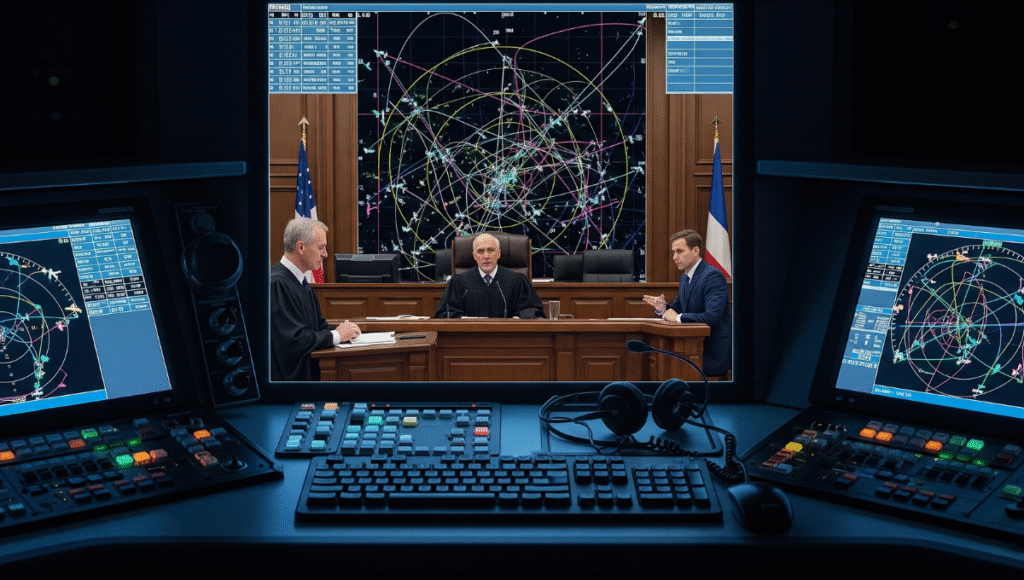In a stunning development that has shaken the aviation industry and sparked a nationwide conversation, Damon Marsalis Gaines, a veteran FAA air traffic controller, was arrested earlier this week under serious federal charges. The incident has not only raised questions about oversight and accountability within the Federal Aviation Administration (FAA), but also ignited a wider debate about the mental health, pressure, and regulation of those entrusted with safeguarding America’s skies.
The Arrest That Shocked the Nation
Gaines, 43, was taken into custody at his home in Atlanta, Georgia, following a joint investigation by the Department of Transportation’s Office of Inspector General and the FBI. According to preliminary reports, he is facing multiple charges, including abuse of authority, endangerment of airspace operations, and falsification of official flight data—a serious breach of trust for someone in a role so critical to national safety.
Sources close to the investigation suggest the alleged misconduct may have spanned several months and involved intentional deviations from standard flight coordination procedures at Atlanta’s Hartsfield-Jackson International Airport, one of the busiest in the world.
The Pressure Behind the Panels
While the exact motives remain under investigation, early reports indicate that Gaines may have been operating under extreme stress, a factor many in the aviation industry say is becoming all too common among controllers.
“Air traffic control is one of the most mentally taxing jobs in the world,” says Alicia Harper, a retired FAA supervisor. “Controllers are responsible for thousands of lives every day, and yet we often overlook the support they need to manage that pressure.”
Industry insiders have been warning for years about staffing shortages, outdated systems, and burnout, which are now being seen not just as internal challenges, but potential threats to national safety.
Public and Political Fallout
The arrest of Gaines has triggered a wave of outrage and concern. Families of airline passengers, aviation unions, and elected officials are all demanding swift answers and systemic change.
Senator Maria Delgado (D-CA) called for an emergency congressional hearing on FAA oversight. This goes beyond a single individual,” Delgado stated during a press briefing. “This is about whether the FAA is equipped to ensure our airspace is safe and our employees are supported.”
Social media, meanwhile, has erupted with speculation, concern, and criticism of FAA leadership. Hashtags like #FlySafeNow and #FAAReform trended nationally for over 48 hours following the news.
FAA’s Response and Next Steps
In an official statement, the FAA acknowledged the arrest but emphasized that “no aircraft or passengers were harmed” and that “the integrity of U.S. air traffic control remains uncompromised.”
Still, the agency has launched an internal review and temporarily reassigned all personnel connected to the Atlanta control tower pending further investigation.
“This incident is not reflective of the thousands of dedicated professionals who ensure safe air travel every day,” said FAA Administrator Leslie Choi. “However, we recognize the need to look deeper into our internal culture, systems, and support structures.”
What Comes Next?
Damon Marsalis Gaines is currently being held without bail and is expected to appear in federal court next week. If found guilty of every charge, he may be sentenced to as much as 25 years behind bars.
Beyond the courtroom, however, his case may become a defining moment for reform within the FAA and the aviation industry as a whole.

